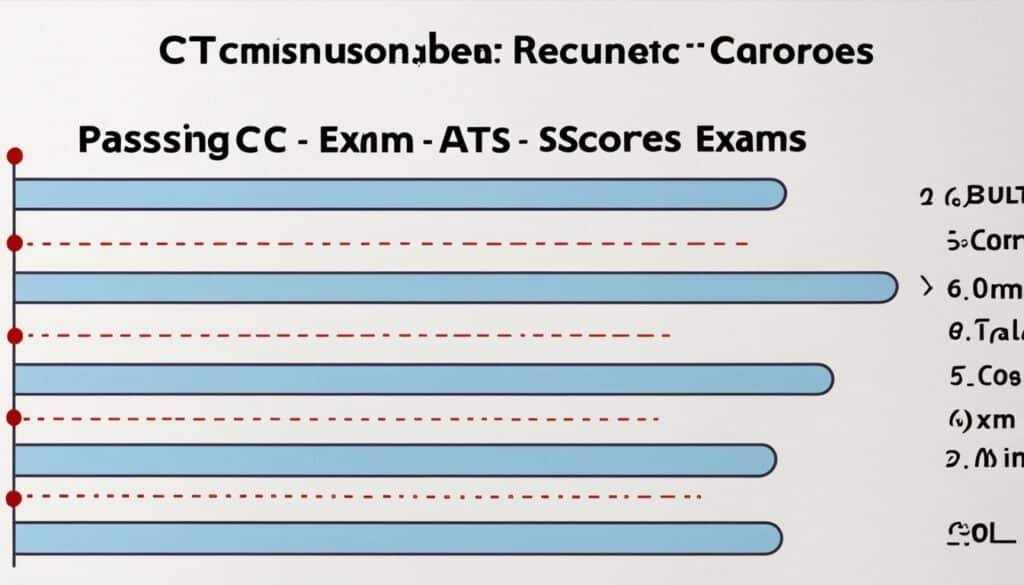To teach in California, you will need to earn a credential by completing a Commission-approved teacher preparation program. There are several pathways to choose from, each combining coursework and student teaching, but with varying timing and nature of these elements. These pathways include Residency, Traditional, Integrated Undergraduate, and Intern programs. Depending on the program you choose, the format may be in-person, virtual, or hybrid, and you may have the option to earn your bachelor’s or master’s degree along with your Preliminary credential. Programs may offer distinct opportunities to access financial resources, including the ability to start earning income and serving as the teacher sooner in some cases. Exploring these different pathways can help you find the one that best fits your personal circumstances and goals for becoming a teacher in California.
Also Read: Cracking DCAS Exams: Are You Ready?
Key Takeaways
- To teach in California, you must earn a teaching credential by completing a Commission-approved program.
- There are several credential program pathways, including Residency, Traditional, Integrated Undergraduate, and Intern.
- The programs vary in their format, coursework, student teaching requirements, and opportunities for financial support.
- Exploring the different pathways can help you find the best fit for your goals and circumstances.
- Passing the CTC exams, such as the CBEST, CSET, and RICA, is a critical step in the credentialing process.
Understanding the CTC Exams
The journey to becoming a certified teacher in California begins with navigating a series of standardized tests known as the CTC (Commission on Teacher Credentialing) exams. These comprehensive assessments are designed to ensure that aspiring educators possess the necessary knowledge and skills to effectively serve in the classroom. The three primary exams that candidates must pass are the CBEST, CSET, and RICA.
Also Read: Unlocking Success: Navigating PSI Exams With Confidence
CBEST: California Basic Educational Skills Test
The CBEST, or California Basic Educational Skills Test, evaluates a candidate’s proficiency in the fundamental areas of reading, writing, and mathematics. This exam assesses the basic skills required for successful teaching, and passing the CBEST is a critical step in the credentialing process. Candidates must demonstrate a thorough understanding of the subject matter and the ability to apply these skills in practical teaching scenarios.
CSET: California Subject Examinations for Teachers
The CSET, or California Subject Examinations for Teachers, is a series of subject-specific assessments that measure a candidate’s in-depth knowledge and expertise in their chosen teaching field. Depending on the credential they are pursuing, aspiring teachers may need to take multiple CSET exams to demonstrate their mastery of the content they will be responsible for teaching.
RICA: Reading Instruction Competence Assessment
The RICA, or Reading Instruction Competence Assessment, is designed to evaluate a candidate’s ability to deliver effective reading instruction to students. This exam focuses on the essential skills and strategies needed to teach reading, including phonemic awareness, phonics, fluency, vocabulary, and comprehension. Passing the RICA is a requirement for obtaining a California teaching credential.
Navigating the CTC exams can be a daunting task, but understanding the purpose and format of each assessment is crucial for successful preparation. By leveraging study guides, practice tests, and other support resources, aspiring teachers can increase their chances of passing these exams and taking the next step towards their teaching career in California.
Choosing the Right Credential Program Pathway

When aspiring teachers in California embark on their journey to earn a Preliminary teaching credential, they have the opportunity to explore four distinct pathways: Residency, Traditional, Integrated Undergraduate, and Intern. Each of these programs combines coursework and student teaching experiences, but the timing and nature of these elements can vary significantly.
Also Read: Want To Succeed On The SAT Exams?
Residency Pathway
The Residency pathway offers a post-baccalaureate approach, where candidates complete their coursework alongside an extended mentoring and student teaching experience. These programs often provide financial support to cover tuition expenses, making it a popular choice for those seeking a more supported and immersive route to their teaching credential.
Traditional Pathway
The Traditional pathway, on the other hand, places a stronger emphasis on academic and theoretical coursework, which is then integrated with student teaching experiences. This approach allows aspiring teachers to build a solid foundation in educational theory and best practices before applying their knowledge in the classroom.
Integrated Undergraduate Pathway
The Integrated Undergraduate pathway offers a unique opportunity for candidates to complete their teacher preparation coursework during their undergraduate education. This integrated model enables students to earn their bachelor’s degree and California credentialing program simultaneously, often in a more streamlined and efficient manner.
Intern Pathway
For those seeking the fastest path to a teaching career, the Intern pathway may be the most appealing option. In this program, candidates serve as the teacher of record after completing a minimum of 120 hours of pre-service requirements, allowing them to start earning an income and gaining practical experience in the classroom sooner.
Carefully considering the benefits, requirements, and personal circumstances of each credential program pathway can help aspiring teachers find the best fit for their individual goals and needs as they work towards earning their teaching credential in California.
Also Read: Mastering The GMAT Exams: Comprehensive Study Guide
CTC Exams Preparation Strategies

Effective preparation for the CTC exams is crucial for success. By utilizing comprehensive study guides and practice tests, candidates can become intimately familiar with the format and content of each exam, while also identifying areas that may require more focused study. Additionally, mastering test-taking strategies, such as effective time management, pacing, and anxiety reduction techniques, can significantly improve performance on the CBEST, CSET, and RICA.
Study Guides and Practice Tests
Investing time in thorough preparation with high-quality study guides and practice tests can provide invaluable insights and boost confidence. These resources not only help candidates understand the structure and content of the exams, but also allow them to identify their strengths and weaknesses, enabling them to tailor their study plan accordingly.
Test-Taking Strategies
In addition to content mastery, developing effective test-taking strategies is essential for success on the CTC exams. This includes techniques such as time management, pacing, and anxiety-reduction methods. By practicing these strategies during study sessions and simulated tests, candidates can hone their skills and approach the actual exams with a heightened level of preparedness and composure.
Time Management Tips
Efficient time management is a critical factor in achieving high scores on the CTC exams. Candidates should create a comprehensive study plan that allocates appropriate time for each subject area and skill, ensuring they cover all necessary content while also allowing for sufficient practice and review. Additionally, incorporating strategies for pacing and prioritizing questions during the actual exam can further enhance performance.
By incorporating a combination of study guides, practice tests, test-taking strategies, and effective time management techniques into their preparation, aspiring teachers can significantly increase their chances of passing the CBEST, CSET, and RICA on the first attempt and take a significant step towards earning their California teaching credential.
Also Read: Your Guide To The PMP Exams Success
Financial Aid Options for CTC Exams

Aspiring teachers in California have access to several financial aid opportunities that can help offset the costs associated with preparing for and taking the CTC (Commission on Teacher Credentialing) exams. These funding sources can make the pathway to a teaching credential more accessible and affordable.
Federal TEACH Grant
The Federal TEACH Grant provides up to $4,000 per year for students who commit to teaching in high-need fields and low-income schools after completing their credential program. This grant can be a valuable resource for those interested in financial aid to support their CTC exams preparation and credential coursework.
Golden State Teacher Grant
The Golden State Teacher Grant offers up to $20,000 for candidates pursuing a teaching credential in subject areas with teacher shortages, such as mathematics, science, and special education. This grant can help make the credential program more affordable and accessible for aspiring teachers.
Teacher Residency Program Grant
Some teacher residency programs in California provide grants that can be used to support candidates during their preparation. These financial resources can help cover the costs of tuition, fees, and living expenses, making the residency pathway a more viable option for those seeking a teaching credential.
By exploring these various financial aid opportunities, aspiring teachers can find the resources they need to pursue their goals and successfully navigate the CTC exams and credential program requirements.
Registration and Testing Centers

Candidates must register for the CTC exams through the Pearson website, which serves as the test administrator for the CBEST, CSET, and RICA. Pearson offers a variety of testing centers throughout California, allowing candidates to select a location and schedule that is convenient for them. The registration process includes selecting the appropriate exam, paying the necessary fees, and scheduling the test appointment. Knowing the registration procedures and available testing centers can help ensure a smooth and successful testing experience.
The CTC exams registration process is straightforward, but it’s important for candidates to familiarize themselves with the steps and requirements. By understanding the available testing centers in California and the Pearson test administration procedures, aspiring teachers can better prepare for and confidently tackle the credentialing exams.
Passing Scores and Requirements

To earn a California teaching credential, candidates must meet specific passing score requirements for the CTC exams. Mastering these benchmarks is a crucial step in the credentialing process, ensuring aspiring teachers possess the necessary skills and knowledge to excel in the classroom.
CBEST Passing Score
For the CBEST (California Basic Educational Skills Test), a total score of 123 or higher is required, with no individual section score below 20. This assessment evaluates a candidate’s proficiency in reading, writing, and mathematics, foundational skills essential for effective teaching.
CSET Passing Score
The CSET (California Subject Examinations for Teachers) passing score varies by subject area, but generally, a score of 220 or higher is needed. These subject-specific exams assess the candidate’s in-depth knowledge and understanding of the content they will be responsible for teaching.
RICA Passing Score
The RICA (Reading Instruction Competence Assessment) requires a score of 220 or above to demonstrate proficiency in delivering effective reading instruction. This exam is particularly crucial for candidates seeking elementary or special education credentials, ensuring they are equipped to support students’ literacy development.
Knowing the exact passing score requirements for each CTC exam is essential for aspiring teachers to plan their preparation and ensure they meet all necessary credentialing standards.
CTC Exams for Specific Subject Areas

The CTC (Commission on Teacher Credentialing) exams cover different subject areas to align with the various teaching credentials in California. Candidates must carefully determine which exam(s) they need to take based on the type of credential they are pursuing and the grade levels or subject areas they wish to teach.
Multiple Subjects
The Multiple Subjects exam is designed for teachers who will be responsible for instruction in multiple content areas, typical of elementary school settings. This exam assesses a candidate’s knowledge and skills across a range of subjects, including English language arts, mathematics, science, social science, and more.
Single Subject
The Single Subject exams assess in-depth knowledge of a specific academic discipline, such as English, mathematics, or science, for secondary school teaching. These exams provide a more focused evaluation of a candidate’s expertise in their chosen subject area, ensuring they have the necessary content knowledge to effectively teach at the secondary level.
Education Specialist
The Education Specialist exams focus on the skills and knowledge needed to work with students who have special needs. These exams cover topics related to individualized instruction, behavior management, and the implementation of specialized teaching strategies for diverse learner populations.
| Exam | Focus | Credential Type |
|---|---|---|
| Multiple Subjects | Broad, interdisciplinary knowledge | Elementary school teaching |
| Single Subject | In-depth subject matter expertise | Secondary school teaching |
| Education Specialist | Teaching students with special needs | Special education |
Transferring Out-of-State Teaching Credentials

Individuals who have already earned a teaching credential in another state or country may be able to transfer that credential to California. The process involves submitting an application, providing evidence of the out-of-state teaching credential, and meeting any additional requirements set by the California Commission on Teacher Credentialing (CTC). In some cases, candidates may need to pass the CBEST, CSET, and/or RICA exams, depending on the specific credential they hold. Navigating the credential transfer process can help experienced teachers from other states or countries transition more seamlessly into the California education system.
The transfer teaching credential process can vary depending on the state or country where the original credential was earned. Candidates may need to submit documentation such as transcripts, test scores, and proof of teaching experience to demonstrate their qualifications. Additionally, the CTC may require candidates to complete supplemental coursework or pass additional examinations to ensure they meet California’s credential requirements.
For those holding a teaching credential from another state, the path to obtaining a California teaching credential can be more straightforward. The CTC has established reciprocity agreements with many other states, allowing for a more streamlined credential transfer process. However, candidates should still carefully review the specific requirements and submit all necessary documentation to ensure a smooth and successful transition.
Navigating the credential transfer process can be complex, but resources are available to guide aspiring teachers through the steps. By understanding the requirements and working closely with the CTC, individuals with out-of-state teaching credentials can leverage their existing expertise and experience to join the California education system and make a meaningful impact on students’ lives.
Support Resources for CTC Exams

As aspiring teachers navigate the journey to earning their California teaching credential, they can access a wealth of support resources to aid in their preparation for the CTC exams. These resources can help candidates feel more confident and equipped to succeed on the CBEST, CSET, and RICA.
Online Forums and Communities
Online forums and communities, such as those hosted by the Commission on Teacher Credentialing or education-focused websites, provide a platform for CTC exams support resources candidates to ask questions, share study tips, and connect with others who are navigating the credentialing process. These online forums and communities offer a valuable opportunity for aspiring teachers to learn from the experiences of their peers and gain insights that can enhance their own exam preparation strategies.
Tutoring and Mentorship Programs
In addition to online resources, many teacher preparation programs, school districts, and nonprofit organizations offer tutoring and mentorship programs to provide personalized support and guidance throughout the exam preparation journey. These programs can help credential preparation candidates identify their strengths, address their weaknesses, and develop effective study habits and test-taking strategies tailored to their individual needs.
By leveraging these CTC exams support resources, aspiring teachers can feel more confident and equipped to succeed on the critical exams that are a crucial step in their path to becoming a certified educator in California.
Conclusion
The CTC exams are a critical step in the journey to becoming a certified teacher in the state of California. By understanding the different exam requirements, choosing the appropriate credential program pathway, and utilizing a variety of preparation strategies and support resources, aspiring teachers can navigate the credentialing process with confidence and increase their chances of success.
Whether you are just starting your teaching career or transferring from another state, the information and guidance provided in this comprehensive guide can help you unlock your full potential and make a meaningful impact in California’s classrooms. By embracing the resources and strategies outlined here, you can ensure that you are well-prepared to tackle the CTC exams and embark on a rewarding career as a teacher in the Golden State.
With a clear roadmap and the right support, you can confidently take the next steps towards earning your teaching credential and joining the dedicated community of educators who are shaping the minds of the next generation. The journey may not be easy, but the rewards of making a difference in the lives of students make it a truly fulfilling and meaningful endeavor.
FAQs
Q: What are the CTC exams?
A: The CTC exams, also known as the California Teacher Certification Exams, are a set of tests required for individuals seeking teaching certification in California.
Q: What is the significance of passing the CTC exams?
A: Passing the CTC exams is essential for obtaining a teaching certification in California, which allows individuals to pursue a career as an educator in K-12 schools.
Q: What subjects are covered in the CTC exams?
A: The CTC exams cover various subjects including mathematics, English, science, social studies, and more, depending on the specific exam you are taking.
Q: How many subtests are there in the CTC exams?
A: The CTC exams consist of three subtests, each focusing on different aspects of teaching knowledge and skills required for certification.
Q: What is the format of the CTC exams?
A: The CTC exams are computer-based tests that include multiple-choice questions, essays, and other types of assessments to evaluate your teaching abilities.
Q: How can I prepare for the CTC exams?
A: There are various resources available for CTC exam preparation, including study guides, practice tests, and online courses specifically designed to help you succeed in the exams.
Q: Do I need to take all three subtests of the CTC exams?
A: Yes, in order to fulfill the basic skills requirement for teaching certification in California, you must take and pass all three subtests of the CTC exams.
Source Links
- https://www.ctc.ca.gov/credentials/req-teaching
- https://www.ctc.ca.gov/credentials/roadmap-to-teaching/becoming-a-teacher-in-california/pathways-to-credentialing/preparation-pathway-comparison
- https://www.ctc.ca.gov/credentials/roadmap-to-teaching/becoming-a-teacher-in-california/pathways-to-credentialing





